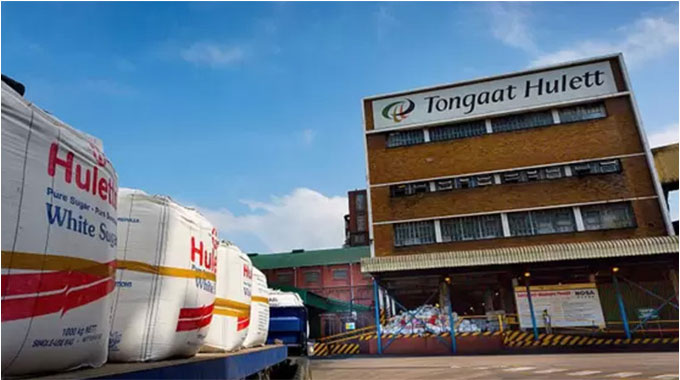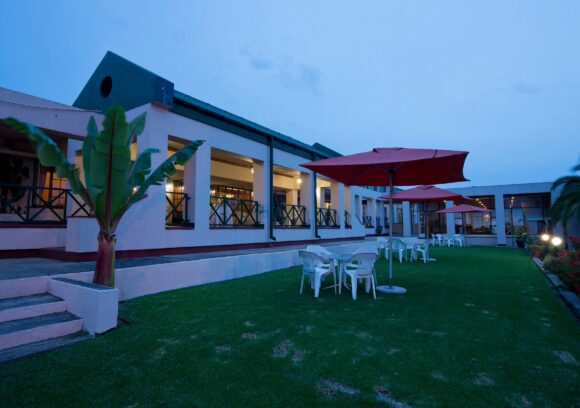ARC budgets US$100m for Zim agric insurance
AFRICAN Risk Capacity(ARC) Limited intends to invest US$100 million towards agriculture insurance in Zimbabwe, as it broadens its African footprint and interventions to improve the strategically key sector’s resilience in the face of climate change.
ARC is a specialised agency of the African Union (AU) established to help African Governments to enhance their capacities to better plan, prepare and respond to the extreme weather events and natural disasters.
The agency predominantly works with governments, humanitarian agencies and small to medium farmers across the continent, but intends to broaden its services in the country through collaborations with local insurance companies.
Operating across 35 countries on the continent, ARC is one of the largest agriculture reinsurance players in Africa.
Zimbabwe has been a beneficiary of ARC’s initiatives but at the government level, which
received US$2 4 million to cover claims from the 2019 drought.
The organisation made notable insurance claim disbursements were recently made
towards Madagascar which was paid US$10, 7 million after falling victim to a severe
tropical cyclone.
In June ARC paid US$14,2 million claims to Malawi and US$5,3 million to Zambia after
two countries experienced drought this year.
According to ARC chief executive Leslie Ndlovu, the agency is motivated to enter the
Zimbabwean private sector market given the importance of agriculture to the country,
which is the mainstay of the local economy, hence the great potential to be receptive to
services.
Announcing the plans on Wednesday, Mr Ndlovu said ACR intended to work with the
entire insurance industry, including brokers, but mainly reinsurers, with the overall goal
of enhancing the affordability of agriculture insurance products to the generality of the
local population.
He said his organisation intended to reinforce the message that Africa needed to be
prepared for natural disasters while at the same time availing financing mechanisms that
minimise the negative impact of extreme weather conditions when they occur.
“We are in Zimbabwe to meet with our partners to map out ways of cooperation, at the
moment we have US$100 million that we put at the service of the market, with our value
proposition we then come to the local market, work with local partners with the express
intention of increasing the number of farmers that have access to insurance.
“In terms of credit rating we are triple B plus rated, which makes us one of the most
highly rated insurance companies on the continent,” said Mr Ndlovu.
According to the Food and Agriculture Organisation (FAO), agriculture contributes
approximately 17 percent to Zimbabwe’s economy, supplies 60 percent of the raw
materials required by the industrial sector and contributes 40 percent of total export
earnings, meaning droughts severely affect the country’s income.
By transferring the burden of natural disaster risks away from governments and their
populations, the organisation facilitates a more calculated response approach to
disasters.
Also addressing the media, resilience adviser with United Nations Development Program
(UNDP) Dr Saif Abdelrhman said it was high time African countries ended the culture of
depending on food handouts after experiencing extreme weather conditions that lead to
crop and livestock destruction.
He said it was thus ideal to start working on mitigatory measures that allow farmers to
easily reposition themselves after severe droughts induced by harsh weather conditions
including tropical cyclones.
“Traditionally in Africa in case of drought that kills agriculture and livestock we turn to
agencies for the provision of food but sovereignty is always a responsibility, which
means if you are a sovereign state you have responsibility for your own people and that is
shifting the narrative from humanitarian approach to preparedness, we have been
waiting till the disaster occurs then we look at how to deal with it, it is reactive rather
than proactive, “ said Dr Abdelrhman.
“It is important to be prepared if we know that disasters are going to frequently occur,
otherwise the history of crises will continue to repeat itself.”
ARC limited was established with a specific commercial mandate as a class two mutual
insurance company with seed capital funding, seeded by the United Kingdom’s (UK)
Foreign, Commonwealth, and Development Office (FCDO), and Kreditanstalt Für
Wiederaufbau (KFW) a Germany development bank.-The Herald










